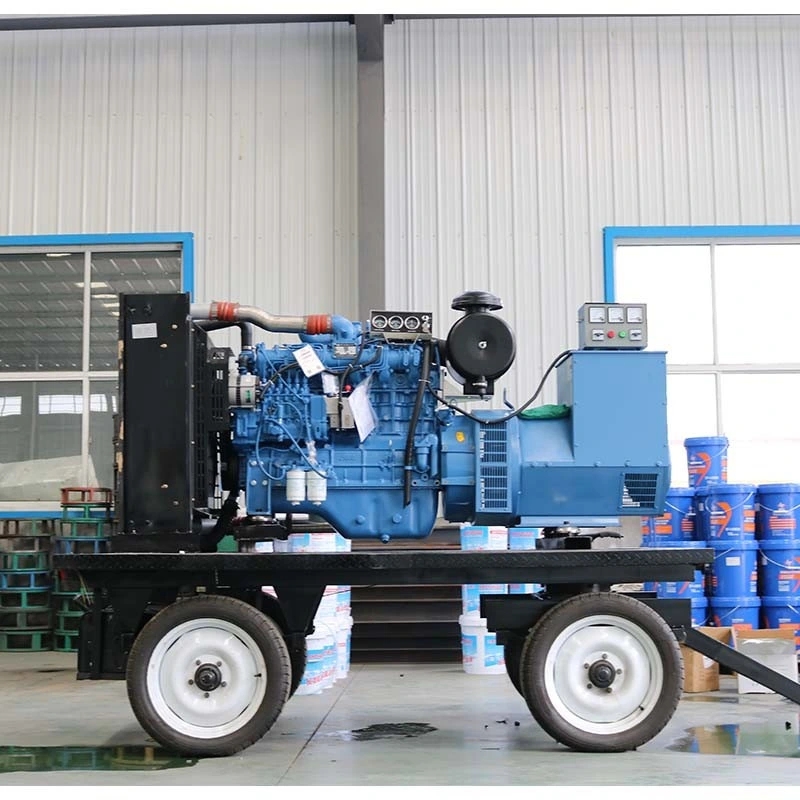Introduction
Diesel generators have long been a crucial technology for providing power in remote locations where access to the electrical grid is limited or non-existent. In recent years, the demand for reliable power sources in off-grid areas has increased significantly, driven by the growing need for electricity in various sectors such as telecommunications, construction, mining, and agriculture. One of the key applications of diesel generators in these remote locations is for remote control systems, which rely on uninterrupted power supply to operate effectively.
This article will explore the role of diesel generators in providing power for remote control systems, the benefits and challenges of using diesel generators in off-grid locations, and the latest developments in diesel generator technology that are making them more efficient and reliable for remote control applications.
The Importance of Diesel Generators for Remote Control
Remote control systems are used in a wide range of applications, from monitoring and controlling industrial equipment to operating unmanned aerial vehicles (UAVs) and satellites. These systems require a constant source of power to function properly, and in remote locations where access to the grid is limited, diesel generators are often the most practical solution for providing this power.
Diesel generators are valued for their reliability and ability to provide a stable source of power even in harsh environmental conditions. This makes them ideal for remote control systems that need to operate 24/7 without interruption. In addition, diesel generators can be easily refueled on-site, making them a convenient power source for locations that are far from fuel supply points.
Benefits of Diesel Generators for Remote Control Applications
There are several key benefits of using diesel generators for remote control applications:
1. Reliability: Diesel generators are known for their reliability and durability, making them an excellent choice for applications that require uninterrupted power supply. In remote locations where power outages are common, diesel generators can provide a stable source of electricity to keep remote control systems operating smoothly.

2. Portability: Diesel generators are typically compact and easy to transport, making them well-suited for use in remote locations where infrastructure is limited. This portability allows for quick deployment of power sources to support remote control systems in various environments.
3. Fuel Efficiency: Modern diesel generators are designed to be fuel-efficient, providing power for extended periods without the need for frequent refueling. This is particularly important in off-grid locations where access to fuel may be limited.
4. Low Maintenance: Diesel generators are relatively low maintenance compared to other power sources, requiring minimal upkeep to keep them running smoothly. This is a significant advantage in remote locations where access to maintenance services may be limited.
Challenges of Using Diesel Generators in Remote Locations
While diesel generators offer many advantages for remote control applications, there are also challenges associated with their use in off-grid locations:
1. Environmental Impact: Diesel generators emit pollutants such as carbon dioxide, nitrogen oxides, and particulate matter, which can have negative effects on the environment and human health. In remote locations with sensitive ecosystems, the environmental impact of diesel generators must be carefully managed.
2. Noise Pollution: Diesel generators can be noisy when operating, which can be a concern in remote locations where noise levels need to be minimized. This can be particularly challenging in applications where remote control systems need to operate in quiet environments.
3. Fuel Storage and Transportation: Storing and transporting diesel fuel to remote locations can be logistically challenging and costly. Ensuring https://www.lkpowerplant.com/product/open-type-high-quality-600kw-diesel-generator-set-powered-by-yuchai-brand-diesel-engine/ is essential to keep diesel generators running smoothly in off-grid areas.
4. Maintenance and Service: While diesel generators are generally low maintenance, servicing and repairing them in remote locations can be difficult without access to trained technicians and spare parts. Proper maintenance and servicing are crucial to ensure the longevity and reliability of diesel generators in remote control applications.
Latest Developments in Diesel Generator Technology for Remote Control
To address some of the challenges associated with using diesel generators in remote locations, manufacturers have been developing innovative technologies to improve the efficiency and reliability of these power sources. Some of the latest developments in diesel generator technology for remote control applications include:
1. Hybrid Systems: Hybrid diesel generators that incorporate renewable energy sources such as solar panels and wind turbines are becoming increasingly popular for remote control applications. These systems combine the reliability of diesel generators with the sustainability of renewable energy, reducing fuel consumption and environmental impact.
2. Remote Monitoring and Control: Advanced remote monitoring and control systems allow operators to track the performance of diesel generators in real-time and make adjustments remotely. This technology enables predictive maintenance, optimizing the efficiency and reliability of diesel generators in remote locations.
3. Energy Storage Solutions: Integrating energy storage solutions such as batteries with diesel generators can help smooth out power fluctuations and provide backup power during fuel shortages. This technology enhances the reliability of diesel generators for remote control applications, ensuring uninterrupted power supply.
4. Emission Control Systems: To reduce the environmental impact of diesel generators, manufacturers are developing emission control systems that minimize pollutants released during operation. Technologies such as exhaust gas recirculation and selective catalytic reduction help lower emissions and improve air quality in remote locations.
Conclusion
Diesel generators play a crucial role in providing reliable power for remote control systems in off-grid locations. Their reliability, portability, and fuel efficiency make them well-suited for applications that require uninterrupted power supply in remote environments. While there are challenges associated with using diesel generators in remote locations, advancements in technology are improving the efficiency and environmental sustainability of these power sources.
As the demand for electricity in remote areas continues to grow, diesel generators will remain a vital technology for powering remote control systems across various industries. By leveraging the latest developments in diesel generator technology, operators can ensure the efficient and reliable operation of remote control systems in even the most challenging off-grid locations.
